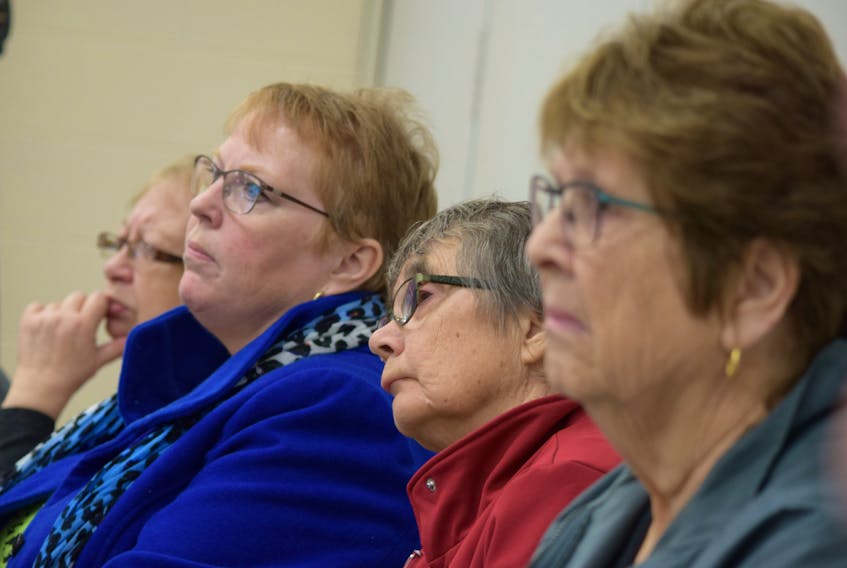SHELBURNE, N.S. – Municipal leaders, health-care professionals and concerned citizens from throughout the south shore and southwestern Nova Scotia have come together to form a rural Nova Scotia health-care crisis working group as a next step in the lobby effort to bring attention to a health-care system that appears to be on life support in many communities.
Co-hosted by the Town of Shelburne and the Nova Scotia Health Coalition (NSHC), more than 40 people representing 11 municipal units gathered in Shelburne on Feb. 15 for an open discussion on the current state of health care in rural Nova Scotia.

Some participated through teleconferencing. One by one, stories were told and issues raised by community representatives from Lunenburg County through to Digby County of a health-care system that simply isn’t working, hasn’t been working for many years, and is continuing to deteriorate. And one by one, suggestions were offered, strategies planned and next moves considered and organized in an effort to get concerns heard and acted upon by the provincial government.
“We’re asking the resources that we built in the province to do things they were never designed to do,” said Rick Snow, RN and nursing professor at Dalhousie University. “We’ve got emergency rooms where physicians spend most of their time filling prescriptions. That’s not what an emergency room was designed for.
“Before I left Roseway Hospital (in Shelburne) there were periods where 99 per cent of the patients filling those beds were waiting for long-term care. That’s not what our acute care centres were designed for,” he said. “We’re equipped for something different, we’re asked to do more with less. Our ambulance service is being asked to do things that it was never designed to do. This is not a Shelburne problem. This is not a Nova Scotia problem, this is a national problem.
“Until our politicians at all levels right from the top understand the history of the Canada Health Act…I have watched this crisis happen in slow motion over the past 25 years of my career and nothing is being done,” added Snow, saying in his dealings with the Nova Scotia Health Authority (NSHA) “all I’ve heard is re-assurance because that’s all they have to give. Until the provincial government and federal government get off their duffs and give us more than just words then what else does the NSHA have to give?”
Stories were told of communities such as Lockeport, where residents have been without any health-care service provider for almost two years. For a time, Lockeport had a physician seeing patients at the town clinic one day a week, then it was a nurse practitioner, said Lockeport Mayor George Harding.
He said the town didn’t even know they discontinued a nurse practitioner coming to Lockeport until it was alerted by cleaning staff that it (the clinic) wasn’t being used on the day that is was supposed to be.

“How do you justify an organization like the health authority not even to communicate with a community on an issue like that?” said Mayor Harding, adding the town did meet with the Nova Scotia Health Authority almost a year ago and was reassured that they were working on getting a nurse practitioner to provide service in the town, but nothing has transpired so far.
And in Pubnico, for the past year the ambulance base hasn’t been maintained as a priority base, as was promised in 2004 by the province and Emergency Health Services, said Argyle Municipal Councillor Glenn Diggdon. Priority base status means if the ambulance went out on a call or had to cover Barrington or Yarmouth, another ambulance would be pulled into Pubnico, said Diggdon, a former paramedic whose district includes West Pubnico.
“That hasn’t been the case for about a year now,” he said, meaning anyone needing an ambulance in the Pubnico area could have to wait up to 45 minutes. “The ambulance service in Nova Scotia is not great and it’s getting worse all the time,” he said, adding a petition will be launched in Pubnico in the next week or so “to get our priority base back.”
Municipality of the District of Lunenburg Mayor Carolyn Bolivar-Getson said the community of New Germany in Lunenburg County is in a similar situation.
“The system is broken,” she said. “They are understaffed in hospitals, they are working hours that are not sustainable for anyone and we’re going to lose the doctors that we do have if we don’t change the way we’re doing business. There’s a lot of issues out there. It needs a complete revamping. It’s not just about throwing money at it. It’s about fixing it and making a sustainable system for our province.”
Cumberland North MLA Elizabeth Smith McCossin, the PC health critic and an RN with 27 years’ experience, told those gathered she is organizing a similar meeting in Pugwash, a small community in her riding that is also in health-care crisis mode because of lack of services. Smith McCossin also offered helpful tips on bringing attention to the problem and said the opposition will be bringing forward several bills in the spring legislature related to health care.

Shelburne Mayor Karen Mattatall said a Shelburne County petition, which bears 2,000 signatures, will be given to Liverpool-Queens MLA Kim Masland to present to the House of Assembly when it reconvenes in the spring. Guaranteed access to family doctors, decreased wait times, ensuring access to services locally, ER service available 24/7, and the restoration of local decision-making are the requests for action outlined in the petition.
Other courses of action discussed included bringing the health-care crisis forward to the Union of Nova Scotia Municipalities (UNSM) fall conference, initiating a provincewide petition, and continuing to meet, discuss and co-ordinate to bring attention to the problems plaguing the health-care system in the province.
“The key is we work together to find solutions,” said Shelburne Municipal Warden Penny Smith. “Now is the time to get it right.”









